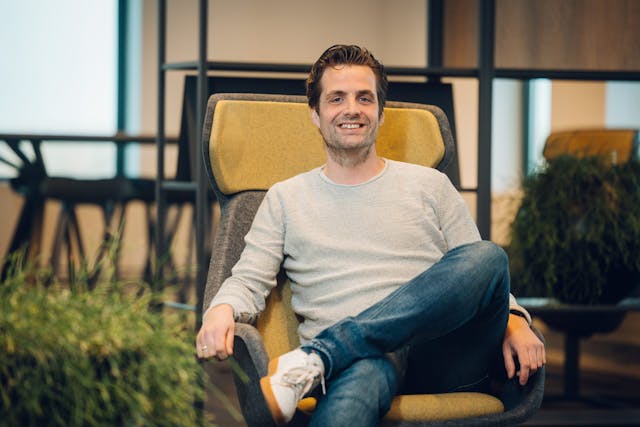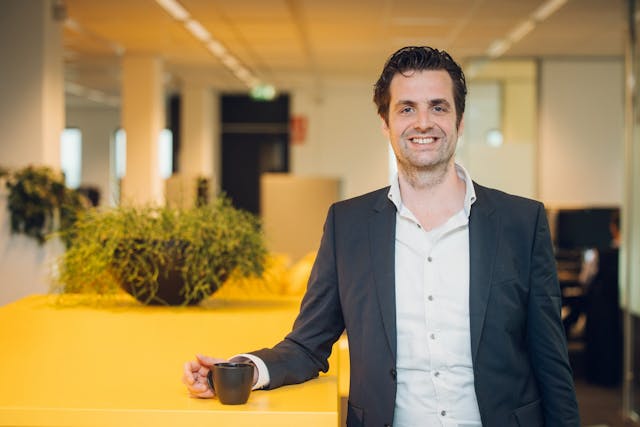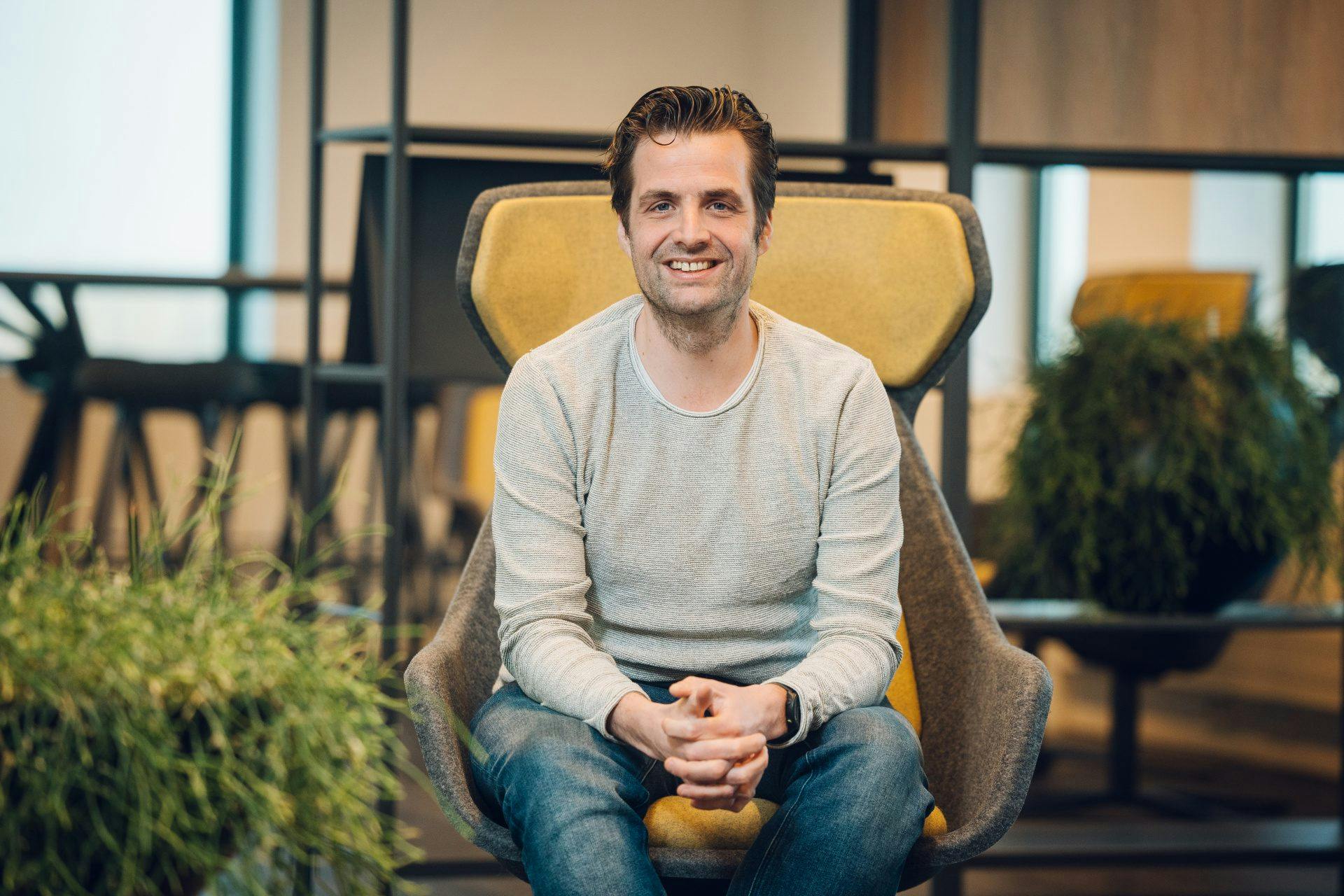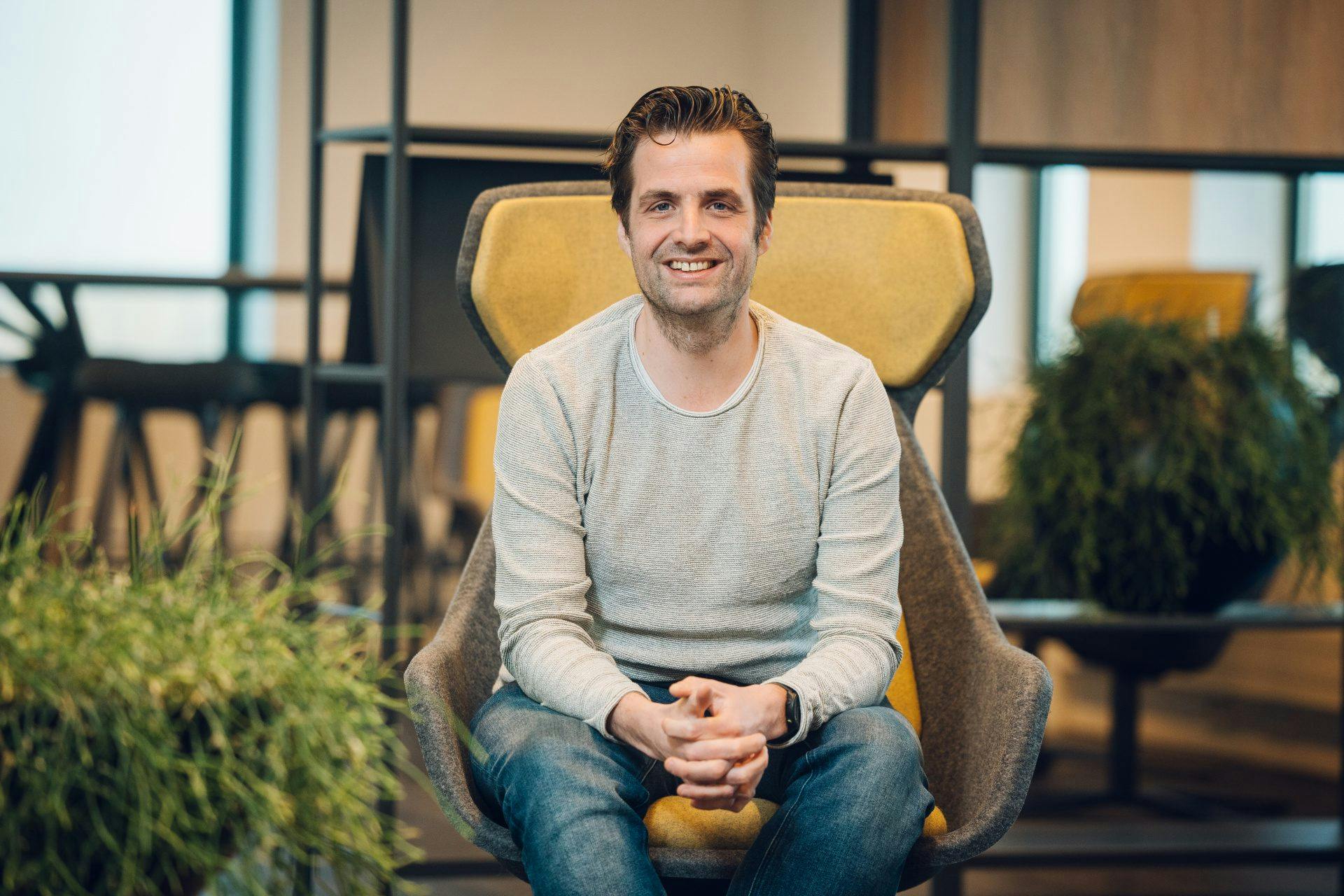Shortly after the turn of the century, ORTEC initially made waves in the world of logistical IT when it was set up by a group of savvy econometricians. TNT, for example, proudly reported using the company's network optimization software at the time. While TNT has since been acquired by FedEx, ORTEC has become a household name and recently secured outside funding from an investment company to fuel its continued growth.
Since coming on board in 2011, Frans van Helden has seen the logistics software vendor grow its annual revenue by 150%. In the process, the company also widened its scope from primarily supplying software to logistics service providers to developing decision-support software especially for the retail and wholesale market, in addition to the manufacturing and energy market. Shippers are now ORTEC’s bread and butter, but the logistics service providers that work for these companies are by no means less relevant.

Frans van Helden, Executive Vice President Supply Chain Planning
"We have started investing more heavily in the preliminary phase to shorten the implementation phase. Some of our cloud native software products are already implemented within a month."
What prompted this shift?
“As far as we’re concerned, there is a lot more sustainable impact to be generated with shippers. What’s more, we believe we can add more value by getting closer to our customers, which can be done most effectively with shippers. That’s not to say that we don’t work with larger logistics service providers such as DHL Supply Chain, too, as they work closely with large shippers. We’ve made a name for ourselves in the food sector, which is mainly the purview of the larger 3PLs. What’s more, shippers in the food sector often use SAP, and our software boasts excellent SAP integration. We’ve shifted our focus to logistics in general, expanding our scope whenever we find an optimization challenge. The wider the view, the better."
What does that mean for logistics service providers?
“I should stress that expanding our focus to include both 3PLs and shippers does not mean that the first group has become any less important to us. We may give that impression, but service providers like Simon Loos are still using ORTEC as an add-on to their TMS and many of them work for food distribution companies that are our clients too. Bakker Logistics, which also works with other retail clients, is another good example of a service provider using our software."
"We can add more value by getting closer to our customers, which can be done most effectively with shippers."
- Frans van Helden, EVP Supply Chain Planning
What are you currently focusing on?
"Compared to previous years, we have become a little more conservative in tailoring systems to a specific customer's situation. In the past, we noticed that our willingness to create overly flexible systems - which saw some describe our ORTEC Routing & Dispatching (ORD) system as Lego technology - could lead to daunting software maintenance challenges and higher costs. Because of our commitment to solving a given problem, we tended to deliver custom products. We are now strongly committed to migrating to the latest versions, not least for security reasons. Furthermore, starting up a dialogue with clients at an earlier stage will contribute to shorter implementations.”
What will that mean for users?
“We have started investing more heavily in the preliminary phase to shorten the implementation phase. We have reached the stage where some of our cloud-native software products can be implemented within a month, but my dream would be day-zero implementation. The next step would be to have customer success teams help the customer move from the basic rollout phase, at which they use say 60% of the application, to 100% percent usage."
What are your thoughts on the rise of visibility platforms?
“My philosophy has always been to prioritize purpose. Too many companies suffer from what I jokingly call a compulsion for futile control. Watching trucks move around on a digital map has no real purpose. Even though it may give clients a sense of control, you can’t prevent issues once they’ve happened. Post-hoc visibility is not much use in and of itself; it’s much better to be close enough to operations that you can intervene when necessary. It’s also important to have a clear view of your targets and to define what performance level you’re satisfied with. Visibility could therefore be a good jumping off point for an improvement process.”

Frans van Helden, Executive Vice President Supply Chain Planning
"It's my dream to work towards day-zero implementation. The next step would be to have customer success teams help the customer move from the basic rollout phase, at which they use say 60% of the application, to 100% percent usage."
What will you be working towards in the years to come?
“I want to work on deepening and broadening our products within our current markets, growing them into end-to-end applications. At the same time, I want to work on toning down the math-forward image of our tools, because not all of our customers are math whizzes. Above all, they want a user-friendly tool that helps them do their job, which is why we will be focusing on decision-making processes and analytics. At the same time, we’ll be working on improving the intelligence of our software, so that it can autonomously propose improvements to driving times, for example, or suggest other interventions and show their impact.”
Could you give a specific example?
“Take a supermarket that gets its shipments on Mondays, Wednesdays and Fridays, for example. Now if that supermarket suspected that it would be better to switch to other days, it would have to go back to the drawing board and start crunching the numbers. In that situation, a model that could immediately predict the savings associated with certain changes would be a great asset. Armed with such a model, you could proactively go looking for an optimal solution. The outcome may be that you should accept a load factor that is below target on certain days. It would enable customers to play around with various options and explore other decisions and suggestions. In an ideal situation, you’d be able to do all of that in real time.”
Will AI play a major role in this?
“Absolutely, we believe that AI holds great promise as an addition to more traditional Operations Research techniques, which the OR in ORTEC refers to. AI is incredibly powerful in specific situations. Classical methods will remain the gold standard for pure optimization, while AI is more at home in suggesting modifications. In a nutshell, we use technology where it’s most fit for purpose."
"It would enable customers to play around with various options and explore other decisions and suggestions. In an ideal situation, you’d be able to do all of that in real time.”
- Frans van Helden, EVP Supply Chain Planning
How close are we to creating the ideal world for planning professionals?
“It really depends on the company. Currently, planning is often the remit of people with practical experience, which is a good thing, because experience is an asset. At many companies, planning is a largely manual process, and the prospect of a fully automated planning tool is too far-fetched for many. For them, planning systems feel like a black box of sorts that churns out an optimal schedule. If going fully automated is too big of a step, you have to explore smaller steps first. Improving your planning by applying better business rules is a good start. What’s more, planners will have to become planning analysts, solving only the most complicated planning problems. At the same time, innovation does require companies to quickly embrace new technologies.”
About Frans van Helden
As the Executive Vice President (EVP) of the newly formed Supply Chain Planning division within ORTEC, Frans's overarching goal is to exceed client expectations by continuously delivering tangible and enduring value. His commitment to diversity and the integration of technology into business processes stands out, highlighting a forward-thinking and client-centric leadership approach. By making ORTEC’s software offering more scalable and deepening the portfolio in alignment with ORTEC’s continuous improvement philosophy, Frans anticipates a substantial expansion within the next few years in the Americas as well as in Europe.

